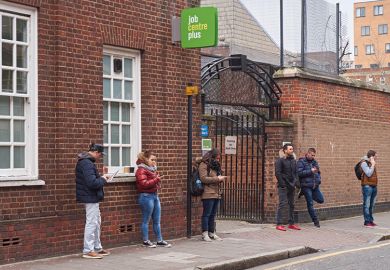MPs have called for the UK to create a new independent body to oversee research misconduct investigations, amid concerns that universities are hiding cases of malpractice.
A report from the Commons Science and Technology Committee highlights that many universities are failing to publish information on problems faced internally relating to incorrect or unethical research.
Highlighting cases in which researchers have been found guilty of research misconduct at several different institutions, the committee suggests that some universities are either “not being sufficiently diligent in checking references when hiring”, or are “using non-disclosure agreements to keep misconduct quiet”.
“Hiding misconduct through non-disclosure agreements is not acceptable, not least as it effectively makes the institution complicit in future misconduct by that individual,” the committee says.
While MPs recognise the importance of university autonomy and resistance to the creation of a powerful regulator, their concerns led them to recommend the creation of an independent body charged with verifying whether institutions have followed appropriate processes to investigate misconduct, similar to the model operated in Australia and Canada.
This new Research Integrity Committee would be able to recommend to UK Research and Innovation that funding should be restricted if appropriate processes have not been followed.
Norman Lamb, chair of the Science and Technology Committee, said that there “needs to be a way of verifying that universities are following their own procedures and investigating misconduct properly”. Failing on this front could lead to “a “knee-jerk reaction towards inappropriate regulation in response to the next big research misconduct scandal”, he warned.
“Universities should view transparency and increased reporting of misconduct as a positive sign that wrongdoing is being spotted and taken seriously, rather than as a threat to the university’s reputation,” Mr Lamb said. “Failing to address this will fuel suspicions that allegations are swept under the carpet.”
As part of their inquiry, MPs asked 136 British universities whether they published an annual summary of research misconduct investigations in their institution, as demanded by the Concordat to Support Research Integrity.
However, only 58 per cent of respondents had published such a statement, with 17 per cent intending to do so soon. This meant that one in four universities did not publish such a statement and, while many of those in this group do not have strong research profiles, the committee said this lack of compliance made it difficult to determine the full scale of research misconduct in the UK.
“It’s not a good look for the research community to be dragging its heels on this, particularly given research fraud can quite literally become a matter of life and death,” said Mr Lamb.
Compliance with the concordat is technically stated as a prerequisite for receiving public grants and funding. No action has been taken so far to remove funding from those who are uncompliant, but this could soon change.
One of the main recommendations to come from the inquiry is for the Research Integrity Committee to publish an annual report on the state of research integrity in the UK, including information on retractions, misconduct investigations and their outcomes as well as training undertaken to improve the system from within.
“The data for this will come from university narrative statements and the aggregated data on screening-phase investigations that UKRI is now being provided with,” the report confirms.
Register to continue
Why register?
- Registration is free and only takes a moment
- Once registered, you can read 3 articles a month
- Sign up for our newsletter
Subscribe
Or subscribe for unlimited access to:
- Unlimited access to news, views, insights & reviews
- Digital editions
- Digital access to THE’s university and college rankings analysis
Already registered or a current subscriber?








